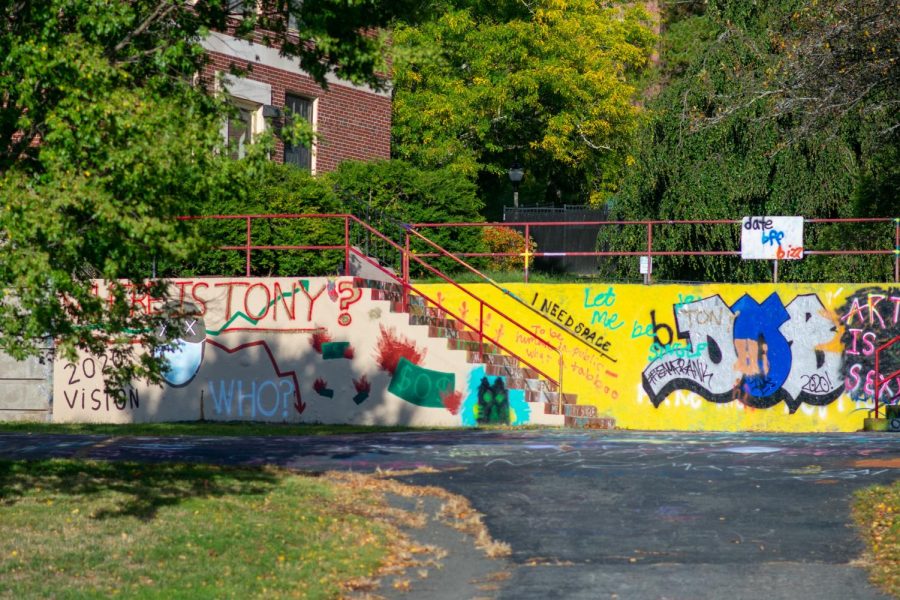Another grossly out of touch email from Chancellor Kumble Subbaswamy graced my inbox last Friday announcing the end of the University of Massachusetts’ self-sequester directive. Nestled quietly between the campus updates was the notice that “Students out of compliance with the [COVID-19] testing protocol will lose access to their fully remote courses. Access to Moodle and Blackboard will be curtailed.” Crucially, it appears that this this directive extends to students living off-campus in the Amherst area as well, even those who are not enrolled in any in-person classes.
Many members of the campus community rejoiced, describing this measure as “the only good idea they [the UMass administration] have had so far. This is probably the only legally feasible way to ensure ALL students in the area are getting tested,” read a comment on the subreddit r/umass.
What the University fails to recognize is that testing is not easily accessible for all students. Off-campus students without cars find it difficult to get tested regularly. It can be hard to rely on getting a ride or timing the bus right to get to Mullins, and many students do not live within walking distance of campus. Those students who do live close enough to walk are the lucky ones: UMass Transit bus routes are expansive but do not cover every square mile of Amherst, Hadley and Sunderland. Many don’t have the option to take the bus or catch a ride with a friend, which serves as a barrier for off-campus students to get tested regularly.
As far as solutions go, New York University allows community members to request a test kit by mail, meeting the needs of “non-residential students, faculty members, and employees who are unable to get to campus to pick up/submit a test kit.” UMass implemented a similar mail delivery system for library books this year, would it be too difficult to extend this courtesy to students seeking the University’s required COVID-19 tests?
Besides the obvious issue of transportation, many UMass students, like me, work part- or full-time and penciling in time for a COVID-19 test given the testing site’s limited hours is impossible. As an independent student, I work thirty hours every week to support myself on top of a full-time class schedule. Every moment I’m not in class or at work, I’m doing homework, attending club meetings, interviewing for internships, cooking or — if I’m not exhausted by the end of the week — having a drink with my roommates. My free time is limited to weekends, when testing is inconsistently available, if at all. I do all of this to pay my tuition, which goes straight into the pockets of Chancellor Subbaswamy and the UMass administration, who thank me by cutting off my access to online classes.
To that end, “The threat feels like a major overstep, considering getting tested on campus risks exposure more than anything else I encounter in my daily life,” wrote Christine Whitehair, a junior biology major. The University’s threat is intrusive to students’ personal lives, as it bars them from making their own choices about what they are comfortable doing. Whitehair added that “potentially hundreds of infected people pass through every day … and they don’t wipe down surfaces between individuals [at the Mullins testing center]”. In Whitehair’s eyes, visiting the Mullins testing center is a risk in its own right, and she has been deprived of her choice to take on that risk. College students are adults who have a right to personal agency, including what exposure level we are comfortable with.
NYU accommodates students like Whitehair by offering a testing exception to community members who are not regularly on campus. The University asks students to “receive a Binx or BioReference test result within the 14 days prior to when you need to enter NYU buildings,” which is a reasonable compromise, as NYU only asks for compliance from those who are physically on campus. Chancellor Subbaswamy made no such exception in the Feb. 19 email, and the UMass Testing Programs page includes “undergraduate students who live in the Amherst area and are not coming to campus for classes” in the list of those required to get tested twice a week. Now, the threat of losing access to online courses is forcing students who otherwise sporadically or never visit campus to go out of their way to get tested twice a week.
UMass students also cite tuition dollars as cause for indignance: our access to educational platforms is conditional, which is outrageous considering that our tuition pays for those same platforms. Whitehair continued, rebuking the University for “pulling resources that we pay thousands of dollars for, that don’t pose a risk to the community.” Whitehair’s resentment for the policy stems from the unfairness of it all: we pay a pretty penny for our education, and it’s unfair that the school can take it all away for such a trivial misstep. Will we get our tuition refunded if our Blackboard and Moodle pages are shut down, barring us from completing our education? I think not.
The University’s threat to revoke online learning platforms from students who fail to comply with strict testing protocols in these trying times is tone-deaf and predatory. It delivers harsh punishments to hardworking students completing their education under special circumstances.
Julia Oktay can be reached at [email protected].




















